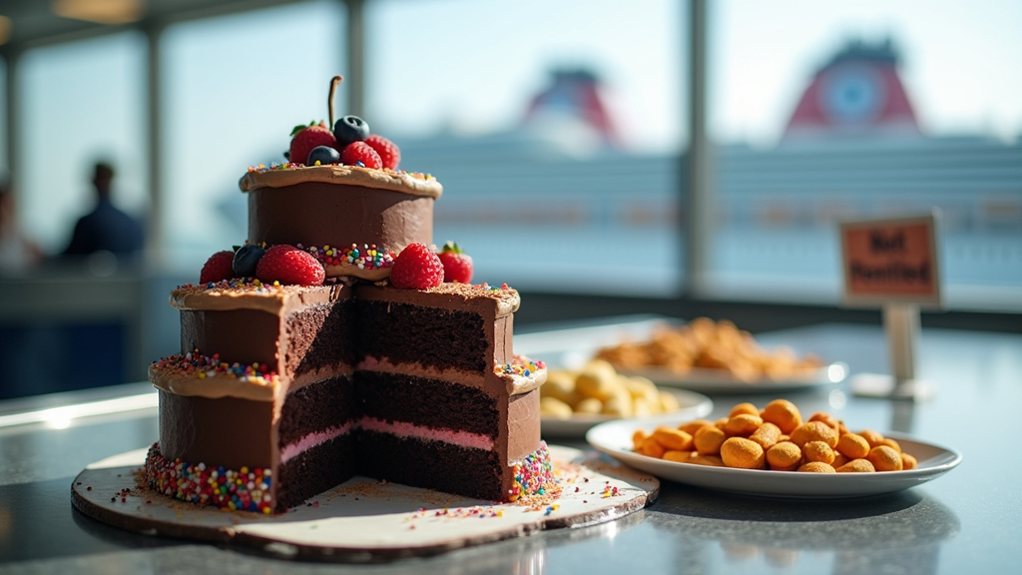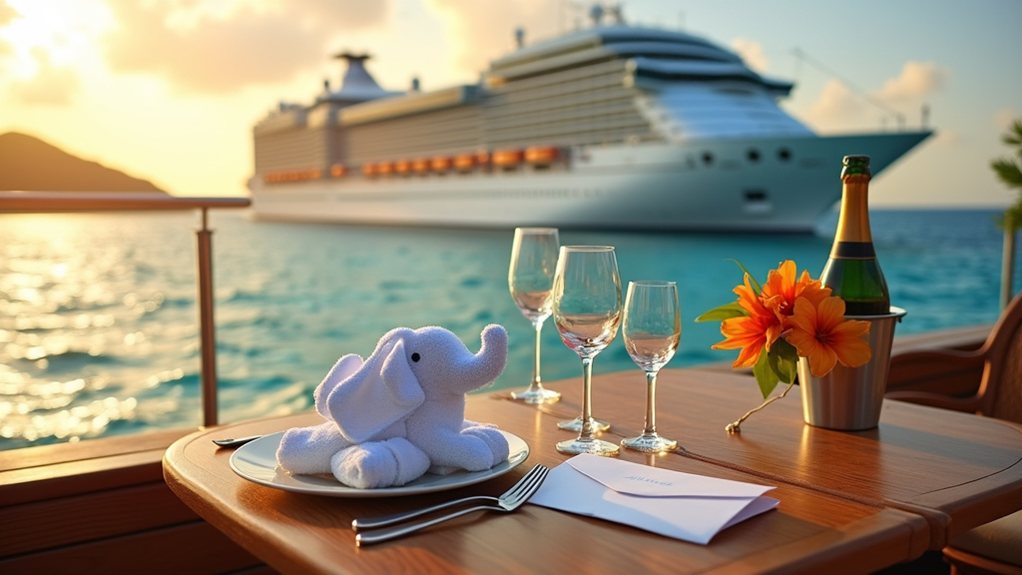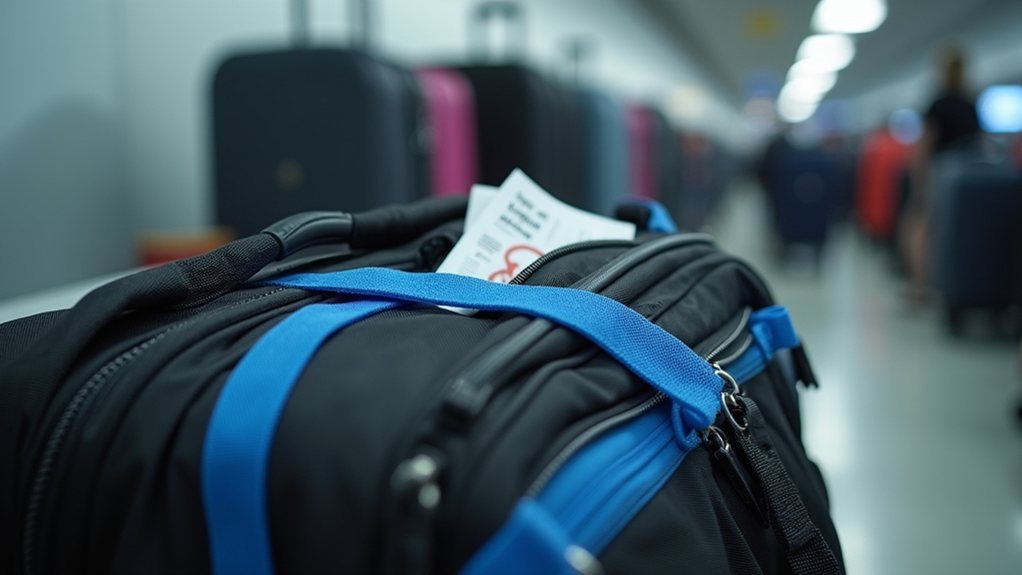Cruise passengers, keen to celebrate special occasions at sea, often face a rude awakening at the security checkpoint when their homemade treats are confiscated. These floating resorts enforce strict “no homemade food” policies, particularly targeting birthday cakes and brownies that might harbor unwelcome stowaways—insects or pathogens that could spread rapidly in the ship’s enclosed environment. Even disguising grandma’s secret recipe cookies in store-bought packaging won’t fool the seasoned security staff, who’ve seen every trick in the passenger playbook.
Why Homemade Foods Are Banned on Cruises

When planning your dream cruise vacation, you might be tempted to pack a container of grandma’s famous chocolate chip cookies or your homemade trail mix for convenient snacking, but these seemingly innocent items could quickly be confiscated before you ever set foot on the ship.
Cruise lines maintain strict policies against all homemade foods, regardless of how carefully prepared or innocuously packaged they might appear.
Security personnel at cruise terminals don’t discriminate regarding homemade goodies. That birthday cake you lovingly baked for your spouse’s celebration at sea? Unfortunately, it’ll be tossed aside faster than you can say “bon voyage.” The same fate awaits homemade brownies, sandwiches, or any food item prepared in your kitchen rather than commercially sealed and packaged.
All homemade food items will be confiscated at security, regardless of how special or innocent they might seem.
“But what if I disguise my homemade treats in store-bought packaging?” seasoned cruisers might wonder. Cruise security is trained to spot these sneaky attempts, and trying this tactic could land you on their watch list for the duration of your trip. Their sophisticated luggage scanning equipment can identify suspicious food items, leading to unexpected baggage searches and uncomfortable questions.
The reasoning behind these seemingly harsh policies makes sense from a safety standpoint. Homemade foods can introduce pests, pathogens, or other contaminants that might spread throughout the ship’s enclosed environment. These policies exist primarily to prevent pests and risks that could compromise the health and safety of all passengers.
With thousands of passengers in close quarters, maintaining strict food safety standards isn’t just about following rules—it’s about protecting public health. These restrictions help prevent foodborne illness outbreaks that could rapidly spread throughout the confined environment of a cruise ship.
Unlike Carnival, some cruise lines like Royal Caribbean Line allow homemade food items onboard, highlighting the importance of checking your specific cruise line’s policies before packing any food items.
For travelers with special dietary needs, there are legitimate alternatives. Most cruise lines accommodate dietary restrictions when notified in advance, and commercially sealed, store-bought foods are generally permitted. A package of gluten-free crackers with manufacturer’s seals intact won’t raise any red flags at security.
Before setting sail, savvy cruisers should review their specific cruise line’s food policies, which typically appear on the company’s website or in pre-departure documentation. Similar to travel insurance policies that contain hidden exclusions, cruise line food rules may have exceptions or special conditions that aren’t immediately obvious.







